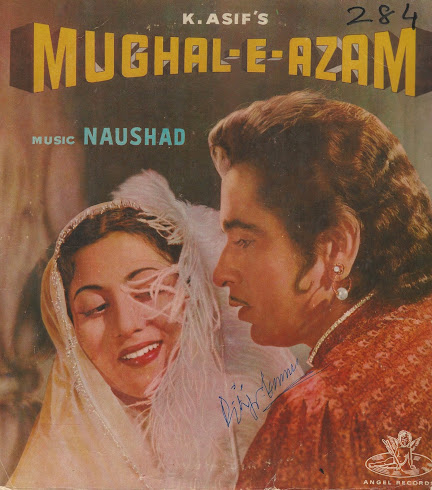Lockdown Learning : Gandhi’s Strategic Prowess
Lockdown Learning : Gandhi’s Strategic Prowess
During the Lockdown, my CXO friends are faced with two common organisational dilemmas. The former is about the challenges in growing demand for their products and the latter relates to the lack of energy and creativity among employees in the Work From Home (WFH) environment. Incidentally, the solution to both lies in Gandhian thinking. And this is not about Gandhian philosophy but about Gandhi’s prowess with Strategic Thinking.
If one finds generating consumer demand as a challenge in today’s crisis, one needs to imagine the travails in selling a product like swaraj to Indians who were struggling in crisis for do waqt ki roti ?
In such testing times, the demand for swaraj was generated through strategic thinking – ‘Choice of Salt as an icon’. Historical documents would show salt was chosen as an icon for revolution since salt was used by every Indian – independent of his caste, religion or financial status. Therefore, by projecting the salt law as a symbol of injustice, Gandhi was able to take British Strategy of ‘Divide and Rule’ head on by communicating ‘United against Misrule’.
However, at the sub-liminal level, by creating a pan-Indian platform for injustice, Gandhi was able to drive the demand for swaraj that was hidden and inherent deep in the heart of masses to become more vocal, more perceptible and more evident. Thus, a ‘need’ was converted into a ‘want’. And this quintessentially is a strategic marketing activity. So Gandhi’s success lied in firstly identification of the right demand driver and secondly and equally importantly in choosing the right communication message. He was able to link miseries of people across caste/religion/occupation to a common factor – the unfair British law.
Quite often, marketeers see demand purely as a function of money in hands of people. Such analysis views demand only from the narrow lens of an economist. Marketeers need to think beyond the tangible drivers of demand. Intangibles, at times, can be the game changing demand drivers – and more so in the times of crisis. Who can forget the Lipstick Effect ? When during 1930-1933, owing to the Great Depression, the US industrial output shrank to half, the sale of lipstick actually grew. The marketers of lipstick were able to position an expensive product like lipstick as a source of joy and confidence. Would consumers, in crisis, ever reduce consumption of items that bring them joy and confidence ?
At the more fundamental level, consumers - during times of crisis - tend to give extra weightage to factors like risk aversion, fear psychosis etc. And therefore, during such times, they tend to be more ‘irrational’ in decision making than they normally are. This not only provides a justification for phenomenon like Lipstick Effect but also provides marketeers the opportunity to beat the economists.
The second problem of CXO relates to generating creative energies among employees in the WFH environment. Gandhi’s another iconic choice – Charkha comes out as an interesting case here.
Charkha represented self-reliance, which meant taking the British Govt head on against its biggest financial strength - British Textile Mills. While again this has been the more historically discussed reason but strategically thinking, Charkha was essentially a vehicle to take the freedom movement straight to every home. Those, who could not protest on streets, were now able to Protest From Home.
And the reason that Spinning Charkha - the first avatar of Work From Home - worked so well was because through the act of spinning Charkha every India was able to see himself as a contributor towards a larger cause. So for the masses, every time they would spin the charkha their engagement levels in the freedom movement would rise multi-fold. And one does not need an HR expert to tell the importance of engagement levels on the organisation’s performance.
Edwards Lifesciences, a maker of devices for treating structural heart disease, would regularly arrange interaction between its patients and its employees. Through this interaction, employees were able to sense and visualise their contribution towards a larger cause. The high engagement levels of employees resulted in continued superior financial results
CXOs of today need to find tools, techniques and vehicles to link employees’ effort in Work From Home to the larger cause of the organisation. And thus generate creative energies that are true drivers of any organisation
Gandhi has largely been a topic of philosophical and moral studies but it’s time for academicians to analyse Gandhi as a strategic thinker. After all, Gandhi was fighting a war and can war be ever won without strategic thinking ?
- Deepesh Salgia
# #gandhijayanthi #mahatmagandhi #gandhi #marketingstrategy #strategicagelity




Yet again! This is a strategic analogy. Who ever thought, salt and charkha were just not symbolic but a vehicle to strategically unite people. This is leadership at its best. Subtly invoking involvement and participation
ReplyDeleteThanks Prashant. And you are right, True leadership involves lot of subtlety
DeleteDeep Impressions you r putting on our thinking more we read your blogs!!! Gandhi Bapu, salt, charkha, leadership and above all strategic thinking all put together is really deep thinking which is always above strategic thinking.Great!!!
ReplyDeleteMany thanks for the kind words of appreciation.
Delete